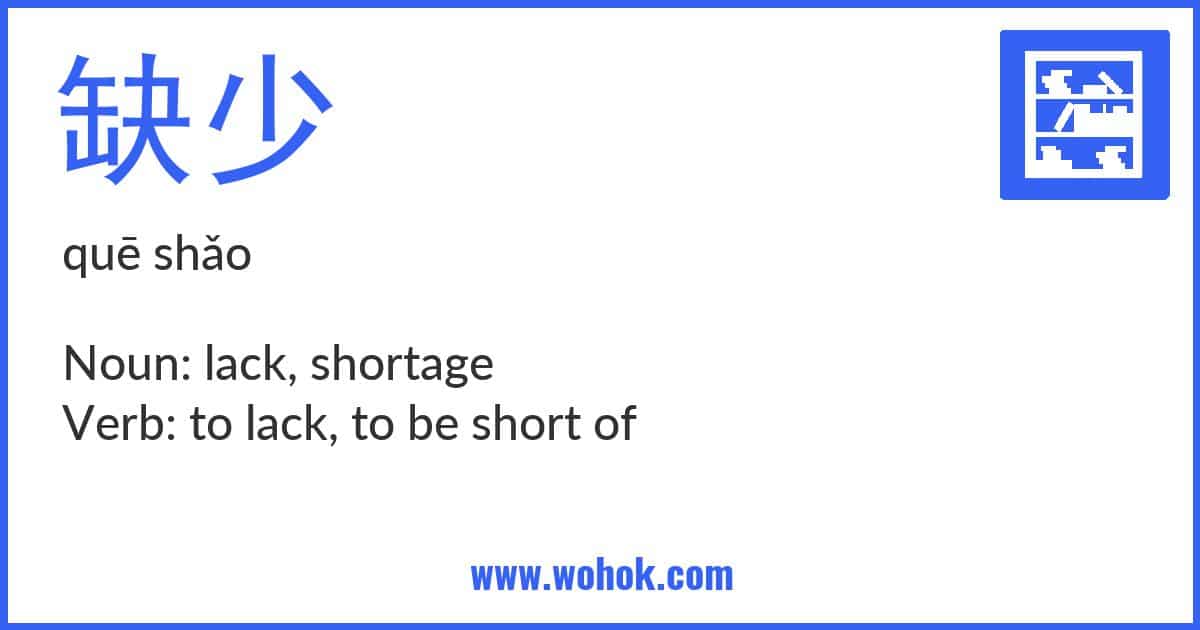The Chinese word 缺少 means “to lack” or “to be short of”. It is commonly used to describe a situation where something is missing or in short supply. For example, you could say “我缺少经验”, which means “I lack experience”. Or you could say “这个项目缺少资金”, which means “This project is short of funding”. In both cases, 缺少 is used to express a deficiency or shortage of something.
Translation
Noun: lack, shortage
Verb: to lack, to be short of
Pronunciation
Example Sentences
| Chinese | Pinyin | Engish |
|---|---|---|
| 这个项目缺少资金支持 | zhè gè xiàngmù quēshǎo zījīn zhīchí | This project lacks financial support |
| 缺少经验让他无法胜任这个职位 | quēshǎo jīngyàn ràng tā wúfǎ shèngrèn zhège zhíwèi | Lack of experience makes him unable to handle this position |
| 我们的团队缺少一个优秀的程序员 | wǒmen de tuánduì quēshǎo yīgè yōuxiù de chéngxùyuán | Our team is missing an excellent programmer |
| 这个城市缺少良好的公共交通系统 | zhège chéngshì quēshǎo liánghǎo de gōnggòng jiāotōng xìtǒng | This city lacks a good public transportation system |
| 缺少锻炼会导致身体不健康 | quēshǎo duànliàn huì dǎozhì shēntǐ bù jiànkāng | Lack of exercise can lead to an unhealthy body |
| 缺少沟通导致团队合作失败 | quēshǎo gōutōng dǎozhì tuánduì hézuò shībài | Lack of communication leads to team collaboration failure |
| 这个菜肴缺少盐和胡椒粉 | zhège càiyáo quēshǎo yán hé hújiāofěn | This dish lacks salt and pepper |
HSK
缺少 is part of HSK Level 4 in HSK 2.0. In the newer HSK 3.0 it is part of HSK Level 3.
Learning Card


